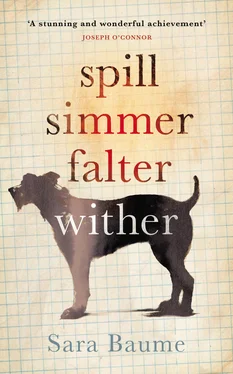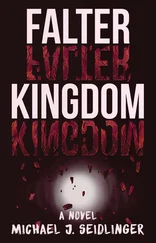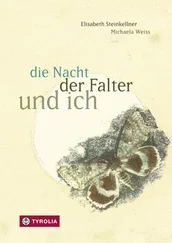Things are never so immense when they happen as they were when only in my head, as I made them, remember? My father was not so heavy to lift nor was it so very arduous to drag him. He smelled like pork and smoke and toothpaste and I realised I’d never been so close to the old man to be able to smell him before. He lost one slipper on the stairs, the other on the stepladder. Then I placed him down on the bare boards of the attic. I rolled him onto his back and brushed his eyelids closed, like they do in films. If the roof had been insulated there would have been yellow pillows of spun glass upon which to lay him out, but it wasn’t and there weren’t, and that was my father’s fault.
I pushed the stepladder back up and the roof obligingly sucked it in. I locked my father’s room without searching for a single trace of my mother and I stuffed up the gap beneath the door with a lumpy fabric snake.

Now as I push open the door of the shut-up-and-locked room, I think again about how things are never so immense when they happen as they were when only in my head, as I made them. Remember? The old man’s room is as I left it, as he left it. There’s hardly even any dust, but then dust is made of human skin, so how could there be? Of course.
You follow me over the threshold and sit at my feet as I sit at his desk. Do you know what the first thing I did was after I put my father in the roof? I locked myself in the bathroom to hide from flashing lights. It was sitting on the toilet seat with the lid lowered that I remembered something I’d read about a custom called Sky Burial. It was in a book about Tibet, there in the living room on one of my shelves. The highest country in the world, where there’s too much buried rock for digging graves. But that isn’t the reason why people bring their dead into the mountains and slash open their flesh and leave them for the vultures. They do it because they believe a dead body is just a vacuous slab of meat to be disposed of in as munificent a way to nature as possible. As I sat on the lowered lid thinking and gradually knowing no flashing lights would come, I saw that I couldn’t have dug a hole for him anyway, in my garden of gravel and cement. I saw how a Sky Burial was to the unknowing best of my ability what I had improvised for my father, and so when the spate of rats began, I was glad, even a little triumphant. The clamour of their activity was a kind of companionship, a kind of comfort. A kind of Sky Burial.
But after only a matter of months it occurred to me that once they’d finished with my father they might seek out a weak spot, a cleft between boards which led to a crack in the ceiling plaster. They might not realise I am not dead. They might not discriminate either way. They might scratch and scratch and scratch until they could drop down and land and rampage through my rooms. For months and years the clamour never fully ceased, and I never fully stopped listening or fearing that the rats might still be chiselling away at a fracture, coming for me.
Then one morning there was an expert on the radio. I haven’t told you this before but it’s about you, are you listening? The expert told me that a small animal, like a rat, will instantly smell the presence of a larger animal, a predatory animal. It will smell and know and stay away. This set me first thinking, then looking, and so there came you; this is how there came you, my good little ratter. And for a while I didn’t hear the scratching in the roof any more, or I forgot to listen.
Now if I was the old man, I ask myself, where would I squirrel my most precious things? The only place I can think of is under the bed, so I lift the corner of the duvet which grazes the carpet, I feel around. And perhaps I am more of my father than I pretend to be because after only a second my hand collides with a rigid object. Not a locket, a letter, a tress. Instead I draw out an old-fashioned sweet jar with a screw top and sticker that reads SHELBY’S ASSORTMENT YOUR NAME HERE. Underneath someone has spelled out a name, a woman’s name in red felt-tip: R U B Y. I unscrew the cap and because my fist is too large to force inside I tip the contents out. It’s stuffed with packets of sherbet dip, empty but for a sprinkling of purest white powder. I check in packet after packet after packet until the sugar dust makes me sneeze. Now I lie flat as I can on the flab of my gut and flay my arms and pat my palms around beneath my father’s bed until I know for certain there’s nothing else. Well, what do you think, is this my mother on the sherbet jar? I tear away the sticker as though she might be in some small way revealed.
Now I get up and reach for the pull-string, and you’re too short and have too many legs and not enough arms to climb the stepladder, and so I must go up alone.
‘Back in a minute,’ I tell you.

Amid such an almighty mess of rat shit, it’s hard to believe my father’s bones could be so clean. I hadn’t expected them to eat his clothes, the sausage in his windpipe, his windpipe. They’ve chewed away the cartilage which bound his skeleton together, they’ve waltzed his disparate pieces across the bare boards. Only the exceptionally long toe bones are recognisable as my father’s.
Now I have to go back down for another plastic bag, and when the plastic bag is not strong enough, for a pillowcase, and when the pillowcase is not big enough, I have to take his ribcage out to the ash stump in the yard and splinter it apart with my kindling axe. The pillowcase bears a pattern of tiny white flowers, but when I look closely they are no type of flower I can name. They are no sensible shape of flower at all. They are wrong, they are fake.
With the pillowcase slung across my shoulder, I take the bag with Mr Buddy inside and the bag with the swallow’s nest inside, the egg-timer, the cushion cover, the panda-bear-shaped pencil-sharpener. I stop only to lift a picture frame, to root out its smiling stranger and press the sticker from the sweet jar against the glass instead. Now I take the picture frame along with all the other stuff, and I take you, of course.
Of course I take you.

Curlews rise from behind the Christmas tree and skitter across the bay peeping, peeping, peeping. The bird book spells the sound they make as cour-lee, cour-lee , like a kind of yodel. But it isn’t, not even close. Each call is different; each call means something new.
The curlews pass over the pine copse at the end of the bird walk. Beside the copse, there’s a van parked on the hard shoulder. Now I see a man in a wool cap standing at the top of a ladder propped into a tree. What’s he doing? A brown blob falls to the grass. Another and another, until I see the wool cap man is holding a handsaw and chopping the pinecones, one by one. After a while he climbs down and goes about with a coal sack gathering his brown blobs from between trunks and amongst needles. A long time passes while we are watching him, but the wool cap man never breaks his ceremony to look back along the bird walk to the village. I wonder will he spray the pinecones with fake snow, tie red ribbons to their stalks and sell them from a car trailer with sticks and blocks. He has a hefty sackful now, far more than he could ever hang on his own noble fir.
In the backyard, there’s a potted tree, remember? I’d forgotten it, until now. It’s a spruce, I think, scarcely the circumference of a dinner plate. I read somewhere that the oldest spruce in the world is eight-hundred-and-fifty-two, and not in a pot, I presume. Every Christmas Eve when I was a boy, my father used to carry our spruce indoors and place it on the living room windowsill and leave it there well into January. But he never decorated it, and every Christmas, it looked bereft. And every new year, I’d be glad when he put it outside again.
Читать дальше













